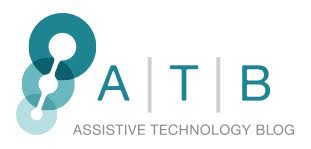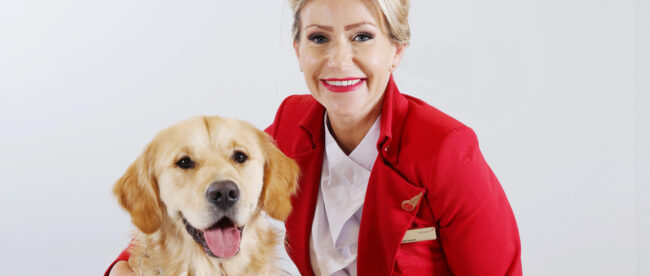Enhancing Air Travel: Virgin Atlantic’s Partnership with Guide Dogs Paves the Way for Inclusive Passenger Experience
Virgin Atlantic has partnered with Guide Dogs to enhance the air travel experience for individuals with visual impairments. In response to research revealing the reluctance of people with sight loss to travel due to past challenges, the airline is taking proactive steps to create a more inclusive environment. The partnership involves specialized training for Virgin Atlantic’s cabin crew, aimed at providing better support for customers with visual impairments. As approximately 250 individuals in the UK begin to lose their sight daily, this collaboration seeks to address accessibility concerns and improve the overall flying experience.
The training program, developed in conjunction with Guide Dogs, encompasses a combination of online resources and comprehensive practical training. The goal is to equip cabin crew members with the necessary skills to assist passengers with sight loss effectively. Training will encompass various aspects, from approaching passengers with visual impairments to helping them navigate through tight spaces, stairs, and seating arrangements on the aircraft. Furthermore, the program will highlight the optimal positioning for guide dogs during extended flights, enhancing the comfort and well-being of both passengers and their service animals.
Corneel Koster, Virgin Atlantic’s Chief Customer and Operations Officer, stressed the airline’s commitment to providing an exceptional experience for all travelers. The partnership with Guide Dogs exemplifies this dedication and aims to deepen the airline’s understanding of the needs of individuals traveling with sight loss. John Welsman, Customer Experience Lead at Guide Dogs, expressed enthusiasm for the collaboration’s potential to empower visually impaired passengers with increased confidence and independence during their journeys.
Inspiration For Other Airlines
Other airlines can learn from Virgin Atlantic’s partnership with Guide Dogs to enhance the air travel experience for people with visual impairments. Here are some key actions that other airlines could consider to make similar initiatives happen:
- Partnerships with Relevant Organizations: Collaborate with regional organizations that specialize in supporting individuals with disabilities, such as Guide Dogs, to develop targeted training programs. These partnerships can provide valuable expertise and resources to ensure that cabin crew members are well-prepared to assist passengers with specific needs.
- Comprehensive Training: Offer comprehensive training that covers a range of topics beyond just the basics. This should include guidance on approaching passengers with sensitivity, assisting with navigation through the aircraft, providing appropriate seating assistance, and addressing the needs of service animals.
- Incorporate Practical Training: Alongside online resources, incorporate hands-on, practical training sessions for cabin crew members. Practical training helps crew members build confidence in providing real-time assistance to passengers with disabilities.
- Sensitivity and Empathy Training: Incorporate training that fosters empathy and understanding towards passengers with disabilities. This can help create a more supportive and compassionate atmosphere on flights.
- Feedback Mechanisms: Establish feedback mechanisms where passengers with disabilities can share their experiences and suggestions for improvement. This ongoing feedback loop can drive continuous enhancements to the airline’s accessibility efforts.
- Inclusive Policies and Procedures: Implement clear and inclusive policies and procedures that address the needs of passengers with disabilities. This includes ensuring that appropriate seating, storage, and other facilities are available and accessible.
- Awareness and Communication: Raise awareness among all staff members about the importance of providing an inclusive and respectful environment for passengers with disabilities. Effective communication among crew members is crucial to delivering consistent support.
- Regular Updates and Refresher Training: Keep training programs up-to-date with the latest best practices and insights. Additionally, offer refresher training sessions to ensure that cabin crew members remain proficient in assisting passengers with disabilities.
- Collaboration with Advocacy Groups: Engage with advocacy groups and communities of people with disabilities to gain insights into their unique needs and challenges. This collaboration can inform the development of more effective training and services.
- Promote Positive Attitudes: Foster a company culture that values inclusivity and encourages staff members to go above and beyond to make all passengers feel comfortable and supported during their travels.
By adopting these practices and embracing a proactive approach to inclusivity, airlines can create a more accessible and enjoyable flying experience for passengers with disabilities, aligning with the broader movement towards making travel a universally accessible endeavor.
Source: Travel & Leisure, Virgin Atlantic
This blog was written mostly using chatGPT, a potential tool for increased accessibility. Do you think this is an appropriate use of chatGPT? Why or why not? Let me know!


Congratulations on taking such a well informed inclusive policy and practice. An accountant friend with spinal injury. last year hired a consultant to arrange flights to and from Singapore. After paying that person for 5 months both parties gave up in frustration. He could have paid handsomely for all that was required. Good on Virgin.